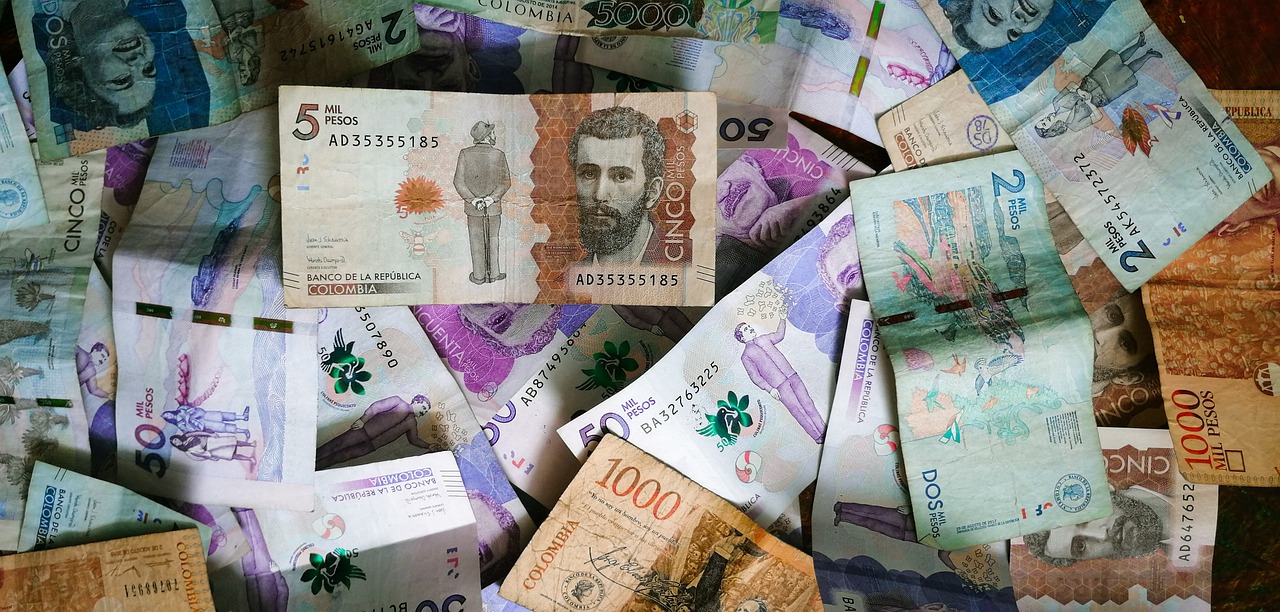Unlocking the Mystery of IBAN Numbers: Everything You Need to Know About Transferring Funds to a Business Account!
GPT_Global - 2024-04-24 15:30:11.0 692
Is there a difference between a BIC and an IBAN number?
When it comes to sending money internationally, many people have questions about the various numbers and codes involved. Two of the most commonly asked about are the BIC and IBAN numbers. While they may seem similar, there are some key differences between these two codes.
BIC stands for Bank Identifier Code, and it is also commonly referred to as a SWIFT code. This is a unique identification code for each individual bank and is used to identify where a bank is located. This number is often required when sending money from one country to another, as it helps ensure that the funds are being sent to the correct bank.
The IBAN, or International Bank Account Number, is a series of numbers and letters used to identify individual bank accounts within the participating countries of the European Union, as well as a few other countries. This code is used to help facilitate international transactions and is required for any transfers between these countries.
While both the BIC and IBAN codes are important for international remittances, they serve different purposes and are used for different parts of the transaction. The BIC identifies the bank, while the IBAN identifies the specific account within that bank. Both numbers are necessary for ensuring a smooth and successful transfer of funds.
In conclusion, while both BIC and IBAN numbers are important for international money transfers, they are not interchangeable. It is important to make sure you have the correct codes for both the sending and receiving banks to avoid any delays or errors in your remittance transactions.

Can I transfer money to a business account using an IBAN number?
When it comes to international remittance, many people are often confused about the process of transferring money to a business account using an IBAN number. In this article, we will explain what an IBAN number is and how you can use it for business transactions.
IBAN stands for International Bank Account Number, and it is a unique code assigned to each individual's bank account. This code is used to identify the bank account during international transactions, making it easier for banks to track and process payments accurately. It is usually a combination of letters and numbers, specific to each country and bank.
In order to transfer money to a business account using an IBAN number, you will first need to obtain the correct IBAN number from the recipient. This number can usually be found on the business's bank statement or by contacting their bank directly. It is important to ensure that you have the correct IBAN number to avoid any delays or errors in the transaction.
Once you have the IBAN number, you can make the transfer through your bank or a remittance service provider. Most banks and remittance companies have the option to send money to a business account using an IBAN number. Simply provide the necessary information, such as the recipient's IBAN number and the amount you wish to transfer, and the transaction will be processed.
It is essential to note that there may be fees involved when transferring money to a business account using an IBAN number. These fees may vary depending on the amount being transferred and the service provider used. Make sure to check with your bank or remittance company to know the exact charges before making a transaction.
In conclusion, transferring money to a business account using an IBAN number is a simple and secure process. Make sure to have the correct IBAN number and inquire about any possible fees before making the transaction. With the help of the IBAN number, international business transactions can now be done quickly and efficiently.
Is there a minimum amount of money required for a transfer to an IBAN number?
When it comes to transferring money to an IBAN number, many people wonder if there is a minimum amount of money required. The answer to this question depends on the remittance service provider and the country you are sending the transfer from.
Some banks and remittance providers may have a minimum transfer amount for international transfers, which can range from $50 to $100. This means that you will not be able to send an amount lower than the minimum required by the provider.
However, there are also providers who do not have a specific minimum requirement and allow you to send any amount you wish. This can be beneficial for those who need to send smaller amounts of money to an IBAN number.
If you are unsure about the minimum transfer amount for your specific provider or country, it is best to check with their customer service or visit their website for more information. This will ensure that you have all the necessary information before making the transfer.
It is important to keep in mind that regardless of the minimum transfer amount, there will still be fees involved when sending money to an IBAN number. These fees may vary depending on the provider and the country you are sending the transfer from.
In conclusion, while there may be a minimum amount required for international transfers to an IBAN number, it ultimately depends on the remittance provider and the country you are sending the transfer from. Make sure to do your research and ask for clarification if needed to ensure a smooth and hassle-free transfer process.
Are there any daily limits on transfers to an IBAN number?
When it comes to transferring money through remittance services, many people may wonder if there are any limitations or restrictions on the amount they can send to an IBAN number on a daily basis.
The answer to this question varies depending on the specific remittance service provider you choose. Some providers may have a daily limit on transfers to a single IBAN number, while others may not have any limits at all.
In order to find out about any daily limits, it is important to research and compare different remittance service providers. You should also check with the specific country and bank where the IBAN number is located, as they may have their own regulations and restrictions in place.
Another factor to consider is the amount of money you are looking to transfer. If it is a large sum, it is always a good idea to contact the remittance service provider directly and inquire about any specific limits or requirements for that particular transaction.
Ultimately, whether or not there are daily limits on transfers to an IBAN number will depend on the remittance service provider and the specific circumstances of your transaction. It is always best to do your research beforehand and communicate with your chosen provider to ensure a smooth and hassle-free transfer process.
Can I transfer money to an IBAN number in a different currency?
Transferring money through IBAN numbers has become a popular method of sending remittances to family and friends abroad. However, one common question that arises is whether it is possible to transfer money to an IBAN number in a different currency. The answer is yes, you can transfer money to an IBAN number in a different currency.
Firstly, it is important to understand what an IBAN number is. It stands for International Bank Account Number, which is a unique identifier for a specific bank account. This number is used internationally for financial transactions, including remittance transfers. Each IBAN number consists of a specific country code, two check digits, and a long series of alphanumeric characters that identify the specific bank account.
When transferring money to an IBAN number in a different currency, the first step is to convert the payment into the desired currency. Most banks and money transfer services offer currency conversion options, allowing you to easily convert your money into the desired currency at the current exchange rate. Once the money is converted, it can be sent to the recipient's IBAN number just like any other remittance transaction.
It is important to note that while it is possible to transfer money to an IBAN number in a different currency, there may be additional fees associated with the currency conversion. These fees can vary depending on the institution or service you use for the transfer. It is always a good idea to compare fees and exchange rates between different options to ensure you are getting the best deal.
In conclusion, if you are looking to send a remittance to an IBAN number in a different currency, you can do so easily by converting your money into the desired currency and sending it to the recipient's IBAN number. Just be aware of any associated fees and compare your options to make sure you are getting the best value for your transfer. With the convenience and simplicity of transferring money through IBAN numbers, staying connected with loved ones abroad has never been easier.
What happens if the recipient's bank does not support IBAN numbers?
IBAN numbers have become the standard for international banking transactions, making sending and receiving money overseas easier and more efficient. However, not all banks around the world have adopted this system. This can raise some concerns for those who use remittance services to send money to a recipient whose bank does not support IBAN numbers.
Firstly, it is important to understand that IBAN numbers are used for identifying bank accounts in Europe, Middle East, and some other countries. If the recipient's bank is located in any of these regions, then there is a high chance that they will have an IBAN number associated with their account. However, if the recipient's bank is located in a country that does not use IBAN numbers, then the remittance process may be slightly different.
In such cases, the recipient's bank may provide an alternative method for transferring funds internationally, such as a SWIFT code. This code is also used for identifying banks in countries that do not use IBAN numbers. Before initiating the remittance process, it is important to check with the recipient's bank to see if they have a SWIFT code that can be used for the transaction.
If the recipient's bank does not have a SWIFT code, then it may be possible to make the transfer through a correspondent bank. A correspondent bank is a financial institution that has a partnership with the recipient's bank. In this case, the funds will be sent to the correspondent bank, which will then transfer the funds to the recipient's bank using local methods. However, this may result in longer processing times and higher fees.
Another option would be to use a different remittance service provider that has experience in sending money to the specific country where the recipient's bank is located. These providers may have established relationships with banks in various regions and can facilitate the transfer more efficiently. However, it is important to do research and compare fees and exchange rates before choosing a different service provider.
In conclusion, if the recipient's bank does not support IBAN numbers, there are still options available for sending money internationally. It is important to communicate with the recipient's bank and explore different remittance service providers to ensure a smooth and cost-effective transfer of funds.
Can I transfer money to an IBAN number using a credit card?
If you're looking to transfer money to an IBAN number using your credit card, then you're in the right place! At our remittance business, we offer a seamless and secure way to send money internationally.
First, let's break down what an IBAN number is. IBAN stands for International Bank Account Number and it is a unique identifier for bank accounts in Europe, the Middle East, and a few other countries. It consists of up to 34 alphanumeric characters, allowing for easy identification and routing of funds.
Now, back to the main question - can you use a credit card to transfer money to an IBAN number? The answer is yes! Our platform allows you to conveniently use your credit card to send money to any IBAN number in the supported countries.
Using your credit card for remittance offers several benefits. Firstly, it eliminates the need for cash or physical checks, making the transfer process faster and more convenient. Additionally, with our competitive exchange rates, you get more value for your money when sending funds via credit card.
When you initiate a transfer with us, we securely process your credit card information and send the funds to the recipient's IBAN number within minutes. You can also track your transaction in real-time, giving you peace of mind that your money is safely on its way.
In conclusion, if you're looking to transfer money to an IBAN number, using your credit card is a safe and efficient option. With our remittance business, you can easily send money to friends, family, or business partners in Europe and beyond. Start your transfer now and experience the convenience of using your credit card for international remittance.
Are there any special requirements for transferring money to an IBAN number for a wire transfer?
The Basics of Transferring Money to an IBAN Number for a Wire Transfer
When it comes to sending money internationally, a commonly used method is the wire transfer. This allows for quick and secure transfer of funds from one bank account to another. However, if you are transferring money to an IBAN (International Bank Account Number) number, there are some special requirements that you should be aware of.
Firstly, it is important to understand that IBAN numbers vary in length depending on the country. They can range from 15-34 characters and include a combination of letters and numbers. This unique number is used to identify a specific bank account for the recipient.
Before initiating a wire transfer to an IBAN number, make sure you have the correct number for the recipient's bank account. It is crucial to double check the accuracy of the IBAN number as any mistakes can result in a failed transaction or even loss of funds.
Additionally, when transferring money to an IBAN number, it is important to ensure that the receiving bank is able to accept wire transfers in the currency you are sending. Some banks only accept certain currencies for wire transfers, so it is best to confirm this beforehand.
Another important consideration is the fees associated with international wire transfers. These fees can vary depending on the banks involved, the amount being transferred, and the currency conversion rates. It is recommended to compare different remittance service providers to find the best rates and lowest fees for your specific transfer.
Lastly, remittance regulations and policies may differ from country to country. It is always a good idea to familiarize yourself with the laws and guidelines of both the sending and receiving countries before initiating a wire transfer.
In conclusion, transferring money to an IBAN number for a wire transfer requires attention to detail and awareness of any special requirements. Double checking the accuracy of the IBAN number, confirming currency acceptance, comparing fees, and being familiar with remittance regulations can all help ensure a successful transaction.
About Panda Remit
Panda Remit is committed to providing global users with more convenient, safe, reliable, and affordable online cross-border remittance services。
International remittance services from more than 30 countries/regions around the world are now available: including Japan, Hong Kong, Europe, the United States, Australia, and other markets, and are recognized and trusted by millions of users around the world.
Visit Panda Remit Official Website or Download PandaRemit App, to learn more about remittance info.



